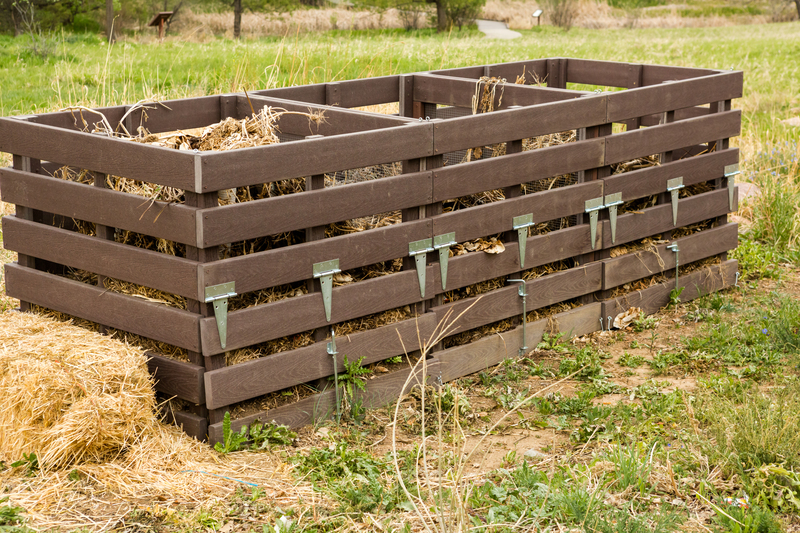How Packaging and Cardboard Disposal Can Transform Your Business
In today's rapidly evolving business landscape, sustainability and operational efficiency are increasingly key to success. Among the most significant - and often overlooked - contributors to these goals are effective packaging strategies and efficient cardboard disposal practices. Whether you're a retail store, an e-commerce business, a manufacturer, or in the hospitality sector, thoughtful management of packaging materials and discarded cardboard can transform your business in unexpected ways.

Why Rethink Packaging and Cardboard Disposal?
Packaging isn't just about protecting products; it touches everything from branding and customer experience to logistics and environmental impact. Meanwhile, cardboard disposal can either be a hidden cost or a source of value, depending on how it's managed. This article explores:
- The link between packaging and waste management
- How better cardboard disposal boosts efficiency and profits
- Ways sustainable packaging can enhance your brand
- Practical steps to optimize your packaging and disposal operations
The Symbiotic Relationship Between Packaging and Cardboard Disposal
The connection between packaging and its eventual disposal is direct and powerful. Every box shipped and received eventually becomes a disposal challenge. Businesses that plan for disposal during the packaging design phase can:
- Cut costs associated with waste handling and storage
- Increase opportunities for recycling and upcycling
- Reinforce their reputation as environmentally responsible companies
The Hidden Costs of Cardboard Waste
Cardboard is one of the most common packaging materials globally. Unfortunately, when not disposed of efficiently, it poses several problems:
- Storage Costs: Accumulated cardboard takes up valuable warehouse or store floor space.
- Logistical Inefficiencies: Inefficient breakdown and stacking increases labor time and handling costs.
- Environmental Penalties: Sending cardboard to landfill often incurs higher disposal fees and damages corporate sustainability ratings.
Improving Cardboard Disposal: Key Strategies
Optimizing your company's cardboard disposal process is about more than just compliance; it's an engine for savings and value creation. Here's how:
1. Implement a Cardboard Recycling Program
Many municipalities now provide robust cardboard recycling services. Setting up a seamless recycling program for your business ensures cleaner operations and can also reduce business waste collection fees. Consider having:
- Clearly labeled and accessible recycling bins in all work areas
- Employee training sessions on proper cardboard preparation (flattening, removing contaminants, etc.)
- Regular pickups scheduled with local recycling providers
2. Invest in Cardboard Balers and Compactors
The use of balers and compactors allows businesses to condense large volumes of waste into manageable, smaller bundles. This approach:
- Frees up storage space instantly
- Reduces collection frequency (and associated costs)
- Allows for possible reselling to recycling firms, creating a new revenue stream
3. Explore Creative Reuse and Upcycling Opportunities
Cardboard doesn't always need to be recycled in the traditional sense. Some organizations find creative ways to reuse or upcycle their used packaging:
- Shredded cardboard for eco-friendly packaging filler
- Custom crafts or displays for in-store promotions
- Donation to schools, artists, or community projects
4. Audit and Minimize Cardboard Use
Reducing packaging material at the source--through right-sizing and smarter design--means there's less to dispose of in the first place. Conducting regular packaging audits can reveal:
- How much excess packaging you're using
- Potential to shift to lighter, more compact packaging options
- Opportunities for supplier collaboration on sustainable materials
The Business Benefits of Sustainable Packaging & Cardboard Disposal
There's a positive ripple effect when companies take packaging and cardboard waste seriously:
1. Cost Savings
Smart packaging design and efficient disposal can significantly reduce expenses related to:
- Storage and handling
- Labor and training
- Waste hauling and landfill fees
- Potential revenue from cardboard recycling
2. Enhanced Brand Image
Today's consumers are increasingly sustainability-minded. Companies that can show a commitment to eco-friendly practices--such as minimizing packaging waste and maximizing cardboard recycling--can leverage this to:
- Boost customer loyalty and trust
- Win new market segments
- Build valuable partnerships with like-minded suppliers
3. Regulatory Compliance
Environmental regulations on packaging and waste disposal are tightening worldwide. Proactive management of packaging design and cardboard recycling ensures your business stays ahead of legal requirements and avoids costly penalties.
4. Operational Efficiency
Streamlined packaging and disposal workflows reduce bottlenecks and confusion. Your staff spends less time handling waste, and more time focusing on value-added activities for your business.
Sustainable Packaging Trends Transforming Businesses
Innovation in packaging doesn't just mean using less material; it also means adopting materials and formats that are easier to recycle and dispose of. Key trends include:
- Right-Sizing Packaging: Adopting packaging that fits the product snugly reduces wasted space, lowers shipping costs, and leaves less cardboard to dispose of.
- Switching to Recyclable & Biodegradable Materials: Using cardboard, paper, and other easily-recycled materials instead of plastics or laminates ensures easier downstream disposal.
- Mono-Material Packaging: Reducing the number of different materials in a package--such as going all-cardboard--simplifies recycling for both your business and your customers.
- Reusable Packaging Solutions: Investing in reusable cardboard crates or returnable packaging schemes reduces both consumption and waste, especially for B2B operations.
The Impact of Cardboard Disposal on Environmental Responsibility
The environmental impact of packaging and waste disposal extends far beyond your warehouse door. Global statistics illustrate the urgency:
- Only about 68% of cardboard is recycled globally, leaving millions of tons in landfills annually
- Producing recycled cardboard uses 50% less energy and water than making new cardboard from raw materials
By investing in correct cardboard recycling and disposal, your business becomes a positive force for change.
How to Launch a Packaging and Cardboard Disposal Transformation
Now that you know the benefits, what does a real-world transformation look like? Here's a step-by-step plan:
Step 1: Analyze Your Current Packaging & Waste Streams
What products or materials produce the most cardboard? Which processes are most wasteful? Engage your staff at all levels for insights.
Step 2: Set Clear, Measurable Goals
Start with targets for reduced cardboard use, increased recycling rates, and cost savings.
- Examples: "Reduce cardboard use by 20% within a year."
- "Achieve 90% recycling rate for all cardboard waste."
Step 3: Partner with Vendors & Waste Management Experts
Discuss possible packaging alternatives with suppliers and get quotes on baler rental or recycling contracts from local providers.
Step 4: Train Staff and Stakeholders
Optimal packaging and cardboard disposal requires buy-in. Run training sessions and create easy-to-understand guides and signage.
Step 5: Measure, Report, and Improve
Use data to track progress, report successes, and identify new opportunities as technologies and regulations evolve.
Real-World Case Studies: Packaging and Cardboard Disposal Success
Retailer Cuts Costs by 30% With Cardboard Compactors
A mid-sized retailer invested in a cardboard baler and switched to right-sized shipping cartons. Within six months, storage costs dropped, recycling payouts grew, and staff appreciated the cleaner workspace.
E-commerce Brand Boosts Loyalty With Sustainable Packaging
By switching to 100% recycled cardboard boxes and highlighting their recycling program in marketing, a national e-commerce brand attracted new customers and received a wave of positive online reviews.
Manufacturer Earns Green Certification
A factory integrated zero-waste goals into its operations, switching to recyclable packaging supplies and achieving industry certification, unlocking new business opportunities with eco-conscious partners.

Conclusion: Make Packaging and Cardboard Disposal a Competitive Advantage
Smart packaging and sustainable cardboard waste disposal are more than regulatory necessities--they are tools for building efficient, profitable, and reputable businesses. By reimagining how your company approaches packaging and disposal, you'll unlock new opportunities for cost savings, brand growth, and positive environmental impact.
Ready to begin your transformation journey? Audit your packaging, set ambitious but achievable goals, and partner with recycling and packaging experts. Your bottom line--and the planet--will thank you.
Frequently Asked Questions
- What qualifies as recyclable cardboard?
Most clean, dry cardboard--like shipping boxes--can be recycled. Contaminated (grease-stained, food-soiled) cardboard should be composted or disposed of separately. - Is it worth investing in a cardboard baler or compactor?
For any business dealing with large volumes of cardboard, a baler can provide significant operational and financial benefits by reducing haulage and increasing recycling revenue. - Can I make money from recycled cardboard?
Yes. Large volumes of baled cardboard are often purchased by recycling companies. The amount earned depends on the market and local providers. - How can packaging design help with cardboard disposal?
Thoughtful design (right-sizing, using mono-materials) streamlines both disposal and recycling, reducing waste and costs for your business and customers.
Start Transforming Your Business Through Smart Packaging and Cardboard Disposal Today
Ultimately, the impact of packaging and cardboard disposal on your business goes far beyond the backroom or warehouse. By treating these elements as integral to your strategy, you'll improve efficiency, save money, build loyalty, and contribute to a more sustainable world.
Transform your packaging and cardboard disposal now--and step confidently into a greener, more profitable future!